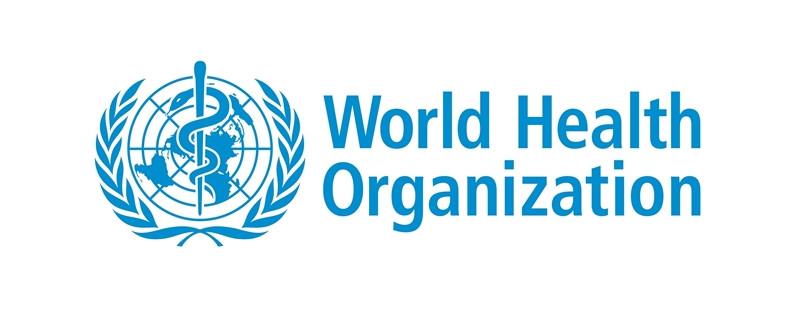Throughout the pandemic – and even before – WHO has provided a range of support to Uzbekistan to strengthen the country’s pandemic preparedness, to develop communication materials to inform, educate and engage the population, to boost laboratory testing capacity, and to help the health system effectively treat patients with COVID-19.
Risk communication and community engagement
Prior to the first cases of COVID-19 appearing in the country, WHO conducted a 2-day training course for 30 press secretaries from the Uzbek Ministry of Health on effective communication in emergency situations. The course covered a wide range of topics, including:
- working with public opinion and combatting misinformation
- developing clear, transparent messages on protective measures
- strengthening community engagement
- engaging trusted influencers
- identifying target groups among the population
- using reliable, scientific, truthful and verified sources of information
- using effective channels for delivering messages to the public.
Since the start of the pandemic, risk communications have been planned and implemented to be contextually and culturally relevant for the situation in Uzbekistan.
United Nations agencies and the Ministry of Health collaborated on the creation of posters, infographics and brochures in Uzbek, Russian, Karakalpak and Braille languages to inform the general public, administrators of schools and preschools, and travellers about the virus, to give advice on protective behaviours, and to dispel emerging myths about the pandemic.
National air and rail companies, governmental ministries, and health-care and educational establishments were engaged to help disseminate these materials and messages.
Several public service announcements on protection measures were also produced in collaboration with the Ministry of Health on what people should do if they have COVID-19 symptoms, how to deal with stress, the differences between quarantine and isolation, how to support older people and children, and more.
Additionally, the WHO Country Office in Uzbekistan produced informative videos that were widely used by United Nations agencies and the Ministry of Health, including on national television channels.
Strengthening pandemic preparedness
With the support of the United States Agency for International Development (USAID), WHO/Europe and the WHO Country Office in Uzbekistan, the Ministry of Health and the Sanitary and Epidemiological Welfare and Public Health Service issued the first weekly national influenza and acute respiratory viral infection bulletin in December 2020.
The bulletin, produced in Russian and Uzbek, enhances the sharing of data on influenza and SARS-CoV-2 viruses in the country. This broadens insight into the biology of these viruses and their antigenic diversity, and helps in the design of appropriate and timely responses to combat them.
As Lyudmila Kudasheva, Chief Epidemiologist at the Sanitary and Epidemiological Welfare and Public Health Service, said, “The national influenza bulletin enables health experts to assess the epidemiological situation and take urgent measures, if needed.”
In addition, WHO ran regular webinars to support the Government’s decision-making processes related to the quarantine and isolation of patients as well as the self-isolation of contacts, asymptomatic cases and mild cases of COVID-19.
WHO also prepared a Joint External Evaluation (JEE) in collaboration with the Government to identify possible gaps in areas of health-system emergency preparedness, such as developing joint national action plans, strengthening multisectoral coordination mechanisms and establishing emergency operation centres.
Boosting laboratory capacity
To ensure the readiness of national laboratories to detect COVID-19, WHO began providing support to Uzbekistan prior to the declaration of the pandemic. In 2020 and 2021, several visits of WHO laboratory experts were organized to support national laboratories by:
- assessing current capabilities, capacities and referral systems;
- training specialists from designated laboratories on COVID-19 testing methods and quality management systems; and
- training national mentors.
In addition, WHO procured and transferred more than 25 000 testing kits and other necessary laboratory supplies to the Sanitary and Epidemiological Welfare and Public Health Service, and produced a series of videos in Uzbek for laboratory workers on sample collection, the use of personal protective equipment (PPE) and biosafety cabinets, and polymerase chain reaction (PCR) testing.
Treatment of patients with COVID-19
From the start of the pandemic, WHO has provided regular support to the Ministry of Health for case management and the drafting of clinical protocols. It has also helped improve standards of patient care by:
- organizing online clinical sessions for experts in the country that highlight the importance of infection prevention and control for health-care practitioners;
- producing training materials from the sessions in Russian, Uzbek and English;
- running a critical-care training course for senior doctors to help them manage patients with severe acute respiratory infection caused by COVID-19; and
- providing biomedical, diagnostic and laboratory supplies as well as PPE and communication materials worth approximately US$ 9.6 million.
Gulia Khamraeva, Associate Professor in the Department of Pediatric Anaesthesiology and Intensive Care at the Advanced Training Centre for Health Professionals, added: “The Advanced Training Centre for Health Professionals developed a curriculum for training Uzbek intensivists using the ‘COVID-19 clinical–epidemiological aspects study guide’, which was developed from WHO’s Clinical Care of Severe Acute Respiratory Infection Toolkit. This has made a significant contribution to the effective treatment of patients with COVID-19 in the country.”








Excellent ideas throughout this post, personally Im gonna have to bookmark this and come back to it. What would you suggest in regards to your post that you made a few days ago?